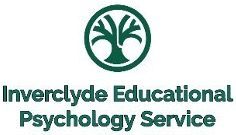It can be difficult for young people to feel empowered, especially in educational contexts where power imbalances can often negatively impact upon a young person’s perceptions of school, their place within it, as well as the perceptions that school staff may have of them. One way of readdressing these imbalances and focusing on what is important to a young person is through Person-Centred Planning (PCP).
What is Person-Centred Planning?
PCP is a process that brings people together to celebrate a young person’s strengths and successes, whilst also attempting to address the challenges that they may face. PCP can help a young person to develop abilities around choice and how to express their views, whilst also highlighting the importance of listening to others. Additionally, PCP can help key adults to become more aware of the issues facing a young person and allow plans to be created that can contribute towards meaningful outcomes. There are many tools that can be utilised as part of PCP, these include: ‘Promoting Alternative Tomorrows with Hope (PATH)’,’ good day/bad day’, a ‘relationship circle’, the ‘three houses’ technique, and a ‘one page profile’ (links to resources can be found in the ‘further information’ section below).
Key principles of PCP
Crucially, to guide practice around PCP, it should be remembered that:
- the young person should be at the centre.
- family and friends should be partners.
- PCP should reflect what is important to the young person, their abilities, and the support that they may require.
- it should not be focused solely on services such as education, but also about the young person in other areas of their life.
- PCP is not a one-off process, rather it should result in on-going listening, learning, and further action.
How can the educational psychology service support?
There are many tools that can be used as part of PCP, one of which is PATH (please see video below):
PATH is just one of many tools. To help decide on the most appropriate PCP tools, as well as how to use them, the EP service can offer relevant support, training, and guidance (for links to alternative resources please see ‘further information’ section below).
Additionally, once a PCP meeting has taken place, practitioners may seek further opportunities to reflect upon the process – this support can be negotiated through consultation with your link EP. Furthermore, it should be noted that there can sometimes be barriers in facilitating effective PCP, including stakeholders unwilling to engage or engaging inappropriately with the process. However, practitioners should be aware that with the appropriate support, issues such as these can be overcome.
Further information
Person Centred Planning (familiesleadingplanning.co.uk)
Person-centred Thinking Tools | HSA | Consultancy | Training (helensandersonassociates.co.uk)


